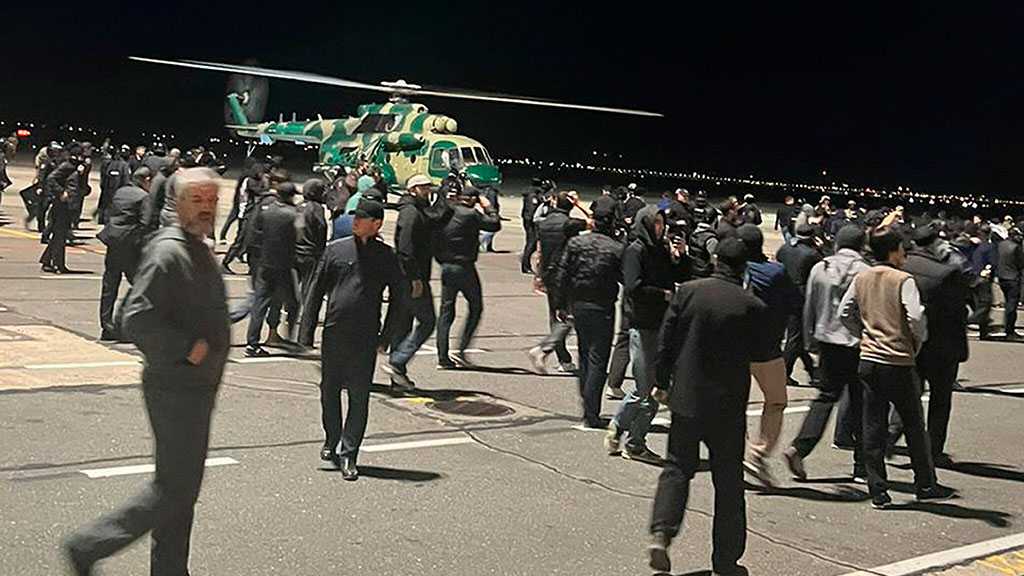
Putin Meets Jordan King, Says No Military Solution to Syria Crisis
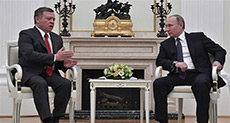
Local Editor
Russian President Vladimir Putin expressed optimism over cessation of hostilities in Syria and rejected military options as a solution to the crisis.
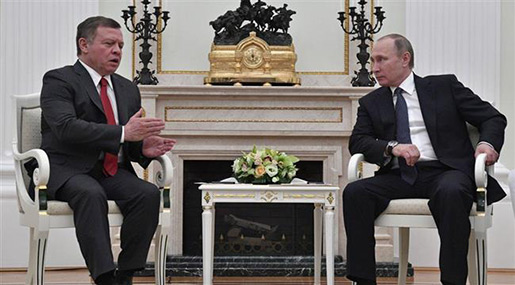
At a meeting in Moscow with King Abdullah II of Jordan, Putin praised Jordan's role in supporting the ongoing efforts to achieve peace in Syria.
"Through our common efforts the process is developing on the basis of a very significant decision that was reached - the cessation of hostilities," the Russian leader said.
He pointed to the achievements of the recent Syrian peace talks in the Kazakh capital Astana as a "good basis", saying all parties to the negotiations agreed that there was "no military solution to the Syrian crisis."
King Abdullah II, for his part, praised Russia's role in the peace talks, saying, "Without Russia, we will not be able to find solutions to not only the Syrian problem but other regional problems in the Middle East."
He expressed hope that the results of Astana meeting will bring "an inclusive future to all Syrian people."
On Tuesday, Syrian peace talks wrapped up in Astana, with Iran, Russia and Turkey agreeing on the establishment of a trilateral mechanism to support the ceasefire in the country and monitor possible violations.
Jordan's support for the Astana talks comes despite the closeness of the country's regional policies to its traditional ally Saudi Arabia. The absence of Saudi Arabia and Qatar, which had taken part in previous meetings on Syria in the Swiss city of Geneva, was among the salient features of Astana talks.
The government of Syria had voiced its vehement disagreement to participation of Riyadh and Doha in Astana talks ahead of the international gathering, citing their support for armed militants, who have wreaked havoc in the Arab country.
Marginalization of the US was another feature of the Astana talks. Iran had objected to the presence of Washington in Syria negotiations, with Foreign Minister Mohammad Javad Zarif noting that no joint invitation had been extended to the US for participation in Syria talks.
The final joint statement of the talks, which was read by Kazakh Foreign Minister Kairat Abdrakhmanov, underlined the importance of maintaining the national sovereignty of Syria.
Iran, Russia and Turkey stressed that there was no military solution to the Syria conflict and that the crisis could be only resolved through a political process based on full implementation of the UN Security Council Resolution 2254.
The three countries also agreed to work out a trilateral agreement with the goal of supervising the ceasefire in the Arab country to guarantee all parties' commitment to the Syria truce and prevent possible violations of the ceasefire.
Elsewhere in the statement, Iran, Russia and Turkey backed the participation of Syria's armed opposition in UN-sponsored negotiations on Syria, which are scheduled to be held in the Swiss city of Geneva on February 8.
The opposition had reportedly expressed dissatisfaction over the statement, but it reaffirmed commitment to protecting sovereignty, independence and territorial integrity of Syria as a democratic country.
Source: Press TV, Edited by website team
Comments
- Related News
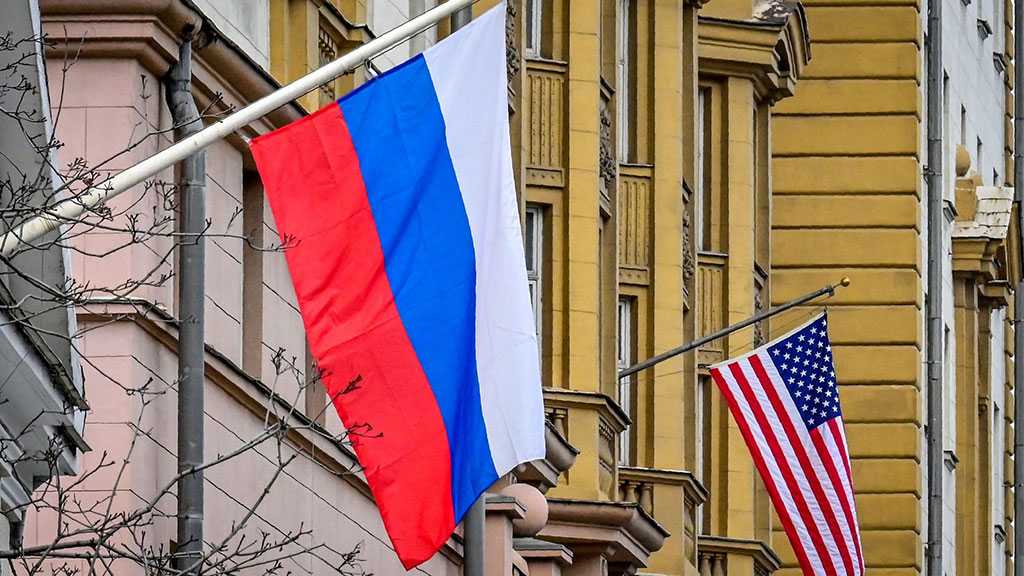
Moscow: Talks with US Unlikely
4 months ago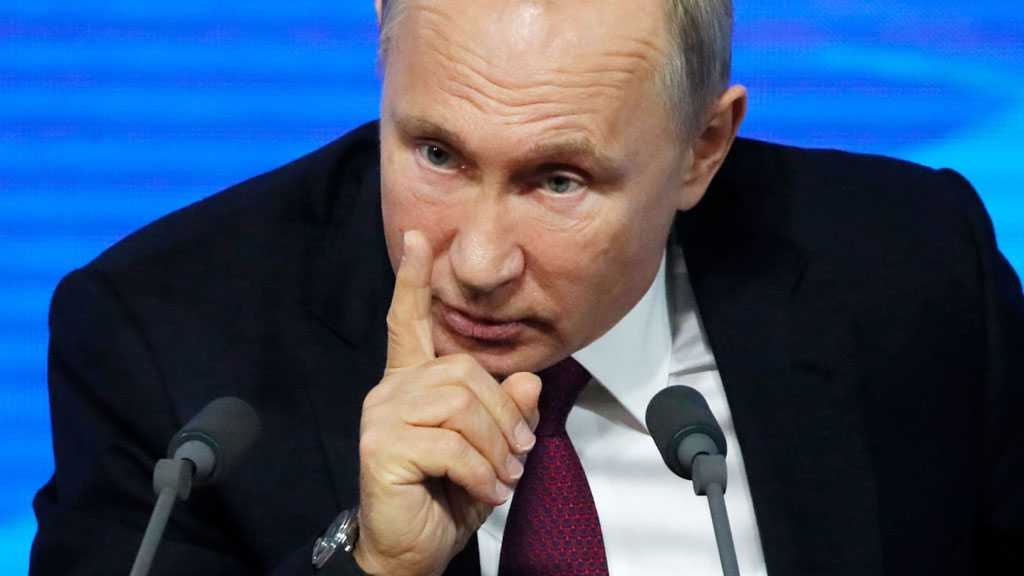
Russia Warns Its Nationals Against Traveling To US
5 months ago
